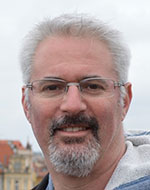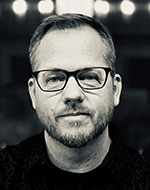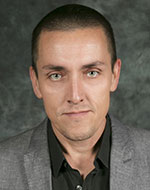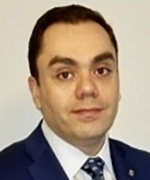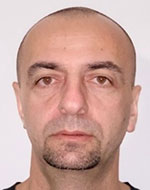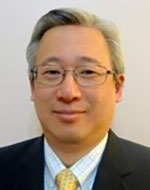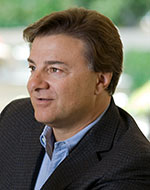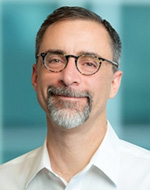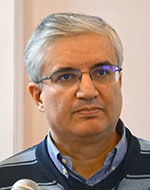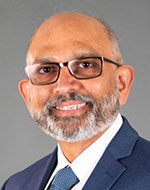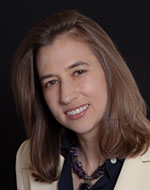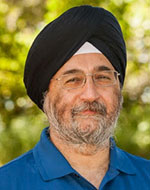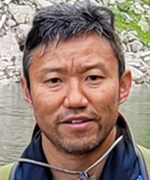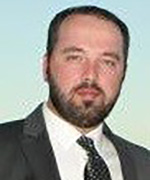Tuesday, 13 September
Segment 1 – Assuring Access to Communications Resources
Session Chair: Scott Poretsky, Ericsson
Abstract: In general, the operators design their networks and over provision their network resources to provide proper quality of service to the end users. However, during humanitarian crisis such as cyclone, hurricane, earthquake, or any man-made disasters such as war, the existing networks and connectivity are subjected to disruption resulting in degradation of service quality or no service in some cases. Evolution of networks such as 5G and beyond has led to the creation of new enablers, namely software defined networking, orchestration, edge cloud and network slicing that can provide desired quality of service to the end users by way of closed loop automation and real-time reconfiguration. These enablers can be used to make the network flexible and programmable by way of scaling out of network functions, dynamic resource provisioning and service chaining. It is also desirable to map the KPIs (Key Performance Indicators) of various applications and the underlying network functions so that the networks can be augmented dynamically. In order to realize the full potential of these enablers to support resilience and quality of service to the end users, it is important to develop a framework that can take into account the automation, orchestration, and artificial intelligence and augment the underlying desired network services. This panel will discuss various network challenges during crises, use cases, and applications associated with them. This is followed by mapping these challenges with the technology enablers and discuss various solutions including network augmentation to support resilience.
Session 1: 5G Fragility Due to Increased Complexity
Speakers:
David Krauss, Principal Network Architect, Advanced Architectures, Ciena Corporation
Andrew Thiessen, MITRE
Alana Scott, Ericsson
Biography:
David Krauss is currently a Principal Network Architect in the Advanced Architectures group for Ciena Corporation. In this role he is responsible for helping Ciena advance new technologies within the company’s Routing and Switching networking portfolio, as well as exploring new architectures and network security in traditional wireline, 5G and 6G networks.
Mr. Krauss has over 25 years of experience working within the telecommunications industry. Prior to joining Ciena in 2013, Mr. Krauss held a similar position with Arion Systems, Inc. where he helped design, build and implement a large federal government agency’s IP/MPLS backbone. He also held numerous management positions with Level 3 Communications and prior to that, he worked at MCI helping lay the foundations of the Internet.
Mr. Krauss received both his Bachelor of Science in Engineering (BSE) as well as his Master of Science in Electrical Engineering (MSEE) from Duke University. He also received a Diplôme d’Ingénieur from École Nationale Supérieure des Télécommunications in Paris, France. In addition to his academic achievements, Mr. Krauss holds a CCIE and CISSP certification, and is a senior member of the IEEE.
Session 2: Private 5G Networks
Session Chair: Scott Poretsky, Ericsson
Speakers:
Andy Robertson, Nokia
Ken Kaminski, Ericsson
Wednesday, 14 September
Segment 2: 5G Evolution and Challenges for 6G
Chair: Michael Ryan, Sr. Mgr. Cloud Architecture and Security, Verizon
Segment Theme: Now that 5G is deployed, it’s time for 5G product evolution. With evolution comes the inherent requirements and challenges to be interoperable with your existing infrastructure and to productize new offerings that harness the power of 5G and 6G. With high speeds, superior reliability and negligible latency, the mobile ecosystem expands into new realms which will impact every industry, whether it’s making safer transportation, remote healthcare, precision agriculture, or digitized logistics….each one of them coming with their own integration considerations, challenges and opportunities. The potential transformation enabled by 5G and 6G comes tightly coupled with MEC for many of the critical use cases both in public and private networks and we’re here to explore the challenges with guaranteed quality, reliability and security.
Biography:
Mike has over 20 years of global telecom and technology experience. He has held various roles in planning, architecture, security, product design & development, engineering and operations, and sales support. Mike is a recognized Verizon Lean Six Sigma Black Belt and has experience leading and partnering with cross functional teams to drive projects to completion with efficiency and success. He currently leads PACT (Product AWS Cloud Technology), an AWS platform that provides a consistent, repeatable and secure way to drive product creation and innovation while adhering to Verizon compliance policies.
Session 3: Edge Computing and Its Effects on Interoperable Networks
Chair: Miguel Carames, Verizon
Speakers:
Michael Elkabas, Principal Technology Architect, TELUS
Igor Angjusev, Mobileum
Gibson Ang, Vice President of Technology and Product Management, Casa Systems
Biographies:
Miguel Carames is currently an Executive Director of Cloud Technology planning at Verizon. Leading a team of engineers responsible for planning, engineering and design of the Verizon Cloud Infrastructure, Multi-Access Edge Compute, Service Orchestration and Emerging Technologies. Prior to this role, Miguel had planning responsibilities for Verizon’s wireless core network including the Evolved Packet Core (EPC), 5G Core (5GC) as well as a number of critical services including the wireless enterprise portfolio, private networks, public safety core, messaging, and OSS/BSS evolution.
Miguel has more than 20 years of experience in the telecommunications industry and has worked in R&D in 3G (UMTS), 4G (WiMAX and LTE) and now 5G. Prior to Verizon, Miguel worked at Motorola for nine years.
Miguel has been an active participant and speaker in multiple industry forums and conferences including GSMA, IEEE, Big5G, TelecomTV and so on. Miguel has been awarded 30+ patents and has filed 20+ more.
As the Principal Technology Architect, Michael leads the end to end 5G Service and Network Architecture in TELUS’s Technology Strategy and Architecture department in the CTO office. In his 15 years with TELUS, Michael had worked on many architecture and delivery projects for IoT, LTE-M and lead many customer facing major wins for TELUS in Connected Vehicle project with various auto OEMs
Roaming Network Services Solution Architect at Mobileum with over 18 years of experience in Telecommunication business handling variety of roles on the forefront of technology. Mechanical Engineer who has worked his way up from the entry level Mobility Call Center representative, through various roles in Technical Support, Roaming Design, Solutioning and Technology Strategy within the Cellular Carrier environment to the current role on the vendor side. Dedicated and determined to his work in helping Service Providers to provide superior roaming service quality to their customers. Has led a variety of initiatives related to the Roaming connectivity, initial LTE Roaming interconnects and Value-Added services, Global Mobile Connectivity, National Roaming and Regulatory projects with current focus on the 5G Roaming initiatives and Private Networks Roaming.
Passionate about the good piece of music, NBA or soccer (football) game and experiencing new places, cultures and traditions with travel.
Ang brings over 20 years of experience to his role as vice president, technology for Casa Systems. He is responsible for the development of new technologies and product strategies for Casa’s converged broadband portfolio. In his role, Mr. Ang works closely with customers to identify new opportunities and define product requirements ensuring that these solutions align with customer needs. Previously, Mr. Ang served as director of mobility product management since he joined the company in 2015. Prior to joining Casa Systems, Gibson was a Product Manager at Cisco Systems responsible for developing and launching wireless products. Gibson started his career with Motorola and worked for high-flying start-ups such as Watercove Networks, acquired by Alcatel-Lucent, and Reef Point, acquired by GENBAND.
Session 4: : Communications Testbed
Chair: Jason Boswell, Ericsson
Speakers:
Peter Pacheco, MITRE
John Marinho, CTIA
Dr. Amitabh Mishra, INL
Thursday, 15 September
Session 5 – Connecting the Unconnected
Chair: Ashutosh Dutta, Chief 5G Strategist and JHU/APL Sabbatical Fellow at Johns Hopkins University Applied Physics Labs (JHU/APL), USA
Speakers:
Mike Brough, Founder and CEO of M2Catalyst, LLC
Salvador D’Itri, NSC
Mohamed-Slim Alouini
Mahshid Noorani
Rajeev Gopal, VP Advanced Systems, Hughes, USA
Sara Agarwal, Airanaculus
Segment Theme: Connecting the Unconnected or under-connected (CTU) is the holy grail of transforming the lives of over 3 billion people around the globe with wireless Internet who are yet to experience its value in multiple ways. If this could be accomplished, its impact on the society would be enormous. In its Vision 2030 SDG (Sustainability Development Goals) the United Nations has proclaimed access to Internet as basic human right and has said that these goals cannot be achieved without affordable access to Internet by everyone on this planet. While there are numerous projects and initiatives ongoing around the world, these are fragmented and lack the critical mass and coordination to be able to impact the future standards, product development, and cost of deployment otherwise achievable by volume. This segment of the program identifies a number of technology gaps to be filled in by 5G and B5G networks, such that access is affordable and content and services are actually consumed by the targeted set of users. Technology aside, the need to develop innovative business models is a must to be commercially sustainable in the long-term and needs to be supported by the, NGOs, policy and regulatory bodies around the world.
Biographies:
Michael has twenty years of telecom software, AI and big data experience, with a focus on building teams to bring new technologies to the telco market. Most recently at M2Catalyst, Mike has focused on global digital divide studies. By merging two powerful global data sets, WorldPop and the M2Catqalyst AI predicted locations of more than 40 million Cell IDs around the world, M2Catalyst brings critical new insights into the global effort to bridge the Digital Divide. https://www.m2catalyst.com/industry-reports
Prior to founding M2, Mike held the position of Senior Director of MNO Relations at Smith Micro Software, Inc. (SMSI) in Aliso Viejo, CA. (2006-12) and as CEO of NetGUI software from 2000 to 2006. Michael has managed complex software rollouts to MNO’s with over one hundred device/software integration projects. He has also led global business development in the APAC, EMEA and LATAM regions, with tier-1 telecom and internet customers in over 25 countries.
Sal D’Itri Federated Wireless General Manager, Research Salvador D’Itri is General Manager, Research and Development at Federated Wireless, Inc. He has served as Chief Marketing Officer and board member for the Wireless Innovation Forum and as an appointee to the Information Technology Advisory Commission for Arlington County, Virginia. His fields of experience include, spectrum management, cognitive radio, telecommunications and cloud computing
Mohamed-Slim Alouini was born in Tunis, Tunisia. He received the Ph.D. degree in Electrical Engineering from the California Institute of Technology (Caltech) in 1998. He served as a faculty member at the University of Minnesota then in the Texas A&M University at Qatar before joining in 2009 the King Abdullah University of Science and Technology (KAUST) where he is now a Distinguished Professor of Electrical and Computer Engineering. Prof. Alouini is a Fellow of the IEEE and OPTICA (Formerly the Optical Society of America (OSA)). He is currently particularly interested in addressing the technical challenges associated with the uneven distribution, access to, and use of information and communication technologies in rural, low-income, disaster, and/or hard-to-reach areas.
Talk Title: Worldwide Connectivity Enabled by Hybrid LEO and GEO Satellite Networks
Dr. Gopal is Vice President, Advanced Systems and is responsible for resilient communications, LEO, 5G, HTS, AI/ML and cyber programs within Hughes DISD. He is the Hughes PM for USAF/USSF Protected Tactical Enterprise Service (PTES). He worked on design of the OneWeb LEO broadband system using 4G/5G and IP network technologies. He earlier served as Network System Engineering lead for Transformational Satellite (TSAT) space segment and was on the SPACEWAY® 3 (onboard L2 processing) architecture and Mobile Satellite systems (Thuraya, ICO, LEO Teledesic), development teams. He was the chief architect and software manager for the SPACEWAY, a $1.8B development, Network Operations Control Center.
Dr. Gopal serves on the editorial board of Wiley’s International Journal of Satellite Communications and Networking (IJSCN) and is member of IEEE 5G World Forum, AIAA Communication Systems Technical Committee, and AIAA ICSSC technical program committee. He represents Hughes in Satellite Industry Association (SIA) and was a member of the FCC Cyber Security working group in 2010-2011. He contributed for the DHS National Communications Sector Risk assessment report in 2011-2012. As a member of the US President’s NSTAC Satellite Task Force 2009, he co-authored the report on commercial satellite communications and cyber security. He has served on program committees including IEEE Globecom SAC, SPIE, and IEEE SIMA and has been on SIA, AIAA/ICSSC, MILCOM, Global VSAT Forum, and National Institutes of Health (NIH) panels. Earlier, he architected drug screening and laboratory automation systems for NIH with IP networking, interactive distributed computing, and robotics technologies and founded a bioinformatics company.
Dr. Gopal has published more than 40 technical papers on topics ranging from satellites, software, AI, machine learning, network management, and life sciences, and holds 11 patents on satellite/communications systems.
Talk Title: Bi-Directional Spectrum Sharing: From Spectrum Agility to Network Agility
With 25 years experience international business experience, Sara is known for her work helping technology companies expand revenue growth and improve business outcome. She is passionate about creating the systems, strategy and structure needed to build and sustain revenue growth. In that regard, she is currently supporting Airanaculus’s efforts to build on the company’s earlier success and enter new markets with groundbreaking networking technology.
Sara spent more than 10 years at blue chip tech firms such as Microsoft, Hewlett Packard, and Verizon where she focused on business development, channel sales, and marketing. More recently, she was Vice President of Operations at Indr, a SaaS software company focused on enabling better digital transformation, where she helped create and implement a partnership with a Fortune 50 company. Prior to that, she was Vice President of Business Development at ISC, a midsize nonprofit organization, where she developed/led efforts to broaden revenue streams through the identification, cultivation, solicitation and stewardship of critical new external funders. As a Director at Hewlett Packard, she helped build and run an entirely new global business development team, overseeing $100m in annual revenue and a 35% YOY increase in win rates.
Additional experience includes her time with Microsoft Corporation in Africa, where she advised African governments on the use of technology to support economic growth and served as Chief of Staff to Microsoft’s Chairman for Africa. As a consultant, she helped Verizon’s Innovation lab to pursue U.S. based corporate partnerships for a $75m digital identity business and led IEEE’s first effort to hold a Connecting the Unconnected competition and summit, attended by over 800 people with 250 applications.
She spent several years of her career with two different donor institutions (the African Development Bank and the North American Development Bank), overseeing large scale development projects in Africa, Latin America, and the United States.
Sara holds a Masters of Public Administration from the Harvard Kennedy School of Government, where she was awarded the Lucius N. Littauer Fellowship for academic achievement, public service, and potential for future leadership. She also holds a Masters of Business Administration from INSEAD, and a Bachelor of Science in Economics from the Wharton School of Business. She is currently an Adjunct Professor at American University’s School of International Service and leads a masters level course called Private Sector and Social Impact, which focuses on issues of corporate social responsibility. She speaks fluent Spanish and French.
Sara has published in The Next Web, Stanford’s Social Innovation Review, and the IMF’s Finance and Development Magazine. She has a patent pending for an education solution linking adaptive learning content and assessments, and is a board member of an award-winning school she co-founded in the District of Columbia in the United States.
Examples of this include her work as Vice President of Operations at Indr, a SaaS software company enabling digital transformation, where she helped create and implement a partnership with a Fortune 50 company, or as a Director at Hewlett Packard where she helped build and run an entirely new business development team, overseeing $100m in annual revenue and a 35% YOY increase in win rates.
It includes my work as a consultant with Verizon’s Innovation lab pursuing U.S. based corporate partnerships for a $100m business, or aiding market expansion in emerging markets for Phase One Consulting, Secure Key, and Creative associates. It also includes my time co-founding and building an award winning school, as well as creating financial models at a leading development bank.
She also spend 6+ years at two different development banks (the African Development Bank and the North American Development Bank) where she was responsible for infrastructure investment/finance in the social sector in Latin America, Africa, and low-income areas of the United States. She served as a Peace Corps volunteer in Guatemala.
While serving as Hewlett Packard’s Director for International Finance Organizations, she tripled the sales pipeline from International Finance Organizations (IFOs), increased the sales conversion rate/win rate by 34% and oversaw a 45% YOY increase in internal participation rate for targeted projects. While with Microsoft Corporation in Africa, she advised African governments on the use of technology to support economic growth.
Session 6 – Applications and Business Models
Chair: Harry (Harinder) Bhasin, Verizon
Speakers:
Harry Bhasin, Verizon
Yu Su, Data Scientist, Verizon
Jessica Chopra, Sr. Data Scientist – Cupertino, CA, Apple
Anthony Magnan, Verizon
Biographies:
Managing development team for Machine Learning based ThingSpace Intelligent Anomaly Detection products. Previously, advisor and technology manager for several data driven products at different companies in Silicon Valley. Joinly hold eight patents in data protection and availability. Research paper on data driven Cyber Security: https://scholar.smu.edu/datasciencereview/vol1/iss2/10/
Data Scientist for Verizon at Texas for 11 years. Designed and implemented ML/big data models including Supervised and Unsupervised Learnings for anomaly detection and prediction, Stream mining, and Mathematic Modeling. Variety datasets include Netflow, Geolocation, Smartphone behaviors, application logs, and types of streaming data.
Jessica Chopra
Data Scientist with the Cust. Insights & Data Science group in Apple retail team. Expert in advance statistical and predictive modeling techniques applied on the complex data sets to solve difficult business problems. Designed various solutions to enable stakeholders to make better business decisions, identify opportunities, experiment, gain insights, and solve difficult business problems.
Anthony Magnan has more than 12 years of Connected Vehicle/Automated Vehicle wireless industry experience and is currently working as the Head of Applied Vehicle Research for Verizon Wireless based in Detroit, Michigan, USA, integrating 5G use cases and Mobile Edge Compute (MEC) requirements into future vehicle platforms and the Smart City initiative. Prior to his current position, he worked as a Carrier Planning Engineer for Ford Motor Company as well as a Cellular RF Optimization Engineer and LTE Network Design Engineer. Mr. Magnan has several years of experience in 3GPP radio systems, LTE & 5G cell planning and optimization, protocol stack, and system architecture. Mr. Magnan is also a contributing member of the Wi-Fi Alliance, 5GAA, IEEE Communication Society and Society of Automotive Engineers and sits on the Technology Advisory Board of the Centre for Connected and Automated Transportation at the US Department of Transportation and Mcity at the University of Michigan, Ann Arbor.



